Business Assessments
We’re your go-to experts in business assessment services. We analyze your business, identifying opportunities and challenges, and provide strategic growth advice.
We’re firm believers in data-driven decisions and our seasoned team brings a unique blend of expertise and analytical rigor. We cover financial performance, operational efficiency, customer satisfaction, and competitive positioning.

Book a time to chat or give us a call anytime. Let’s spend 20-30 minutes chatting it up about your business and see what’s going on!
Key Takeaways
- Business assessment services provide a comprehensive evaluation of business performance, productivity, and areas of improvement.
- These services play a crucial role in guiding decision-making, planning for future growth, managing risks, and optimizing operations.
- Key components of business assessments include scrutinizing efficiency in daily activities, reviewing financial health and growth potential, and evaluating competitive advantage and growth plans.
- The benefits of business assessments include improved efficiency, financial control, competitive advantage, and maximizing the impact of assessments through strategic planning and continuous improvement.
Understanding Business Assessment Services
In our quest to comprehend business assessment services, we’ve got to first delve into its core principles and functions. Essentially, these services aim to provide a comprehensive evaluation of a business’ performance, productivity, and potential areas of improvement. They’re designed to identify strengths, weaknesses, opportunities, and threats within an organization, providing an objective view of its current state.
We can’t overlook the strategic importance of these assessments. They act as a vital tool for decision-making, helping companies to plan for future growth, manage risks, and optimize operations. By providing a clear and detailed picture of a business’ performance, they enable us to make informed decisions, avoid costly mistakes, and maximize opportunities.
However, understanding these services isn’t just about knowing their functions. It’s also about recognizing their value. They can offer insights that might otherwise remain hidden, uncovering issues that could hamper growth or increase risks. In this sense, they’re not just evaluative tools, but also preventive measures that can safeguard a business’ future.
It’s clear that business assessment services play a crucial role in our business operations. They’re not just a ‘nice-to-have’, but a strategic necessity that can drive our business forward.
The Importance of Business Evaluation
We can’t underestimate the significant impact a thorough business evaluation has on our overall success. It’s an integral part of our strategic planning, providing us with an in-depth understanding of our organizational strengths, weaknesses, opportunities, and threats.
Let’s delve into the three core reasons why we should prioritize business evaluation:
Guides Decision Making: It provides us with crucial insights that guide our decision-making processes. By evaluating our business operations, we can pinpoint areas that need improvement, streamline our processes, and maximize efficiency.
Helps Identify Market Position: Business evaluation gives a clear picture of our standing in the market. We understand our competitors better, identify market trends, and align our strategies effectively to stay competitive.
Aids in Risk Management: It helps us identify potential risks and develop contingency plans. By foreseeing potential threats, we can mitigate their impacts, ensuring business continuity.
Key Components of Business Assessments
Diving into the key components of business assessments, it’s crucial to understand that they’re the backbone of our evaluation process. We’ll be looking at three main elements: operations, financials, and strategy.
Firstly, we assess operations to scrutinize efficiency in the company’s daily activities. We’ll dissect the supply chain, production processes, and service delivery, aiming to identify any bottlenecks or areas of waste. Our analysis here is meticulous, seeking opportunities for improvement in every corner.
Next, we delve into the financials. We’re not just talking about the bottom line here. We’ll take a hard look at revenue streams, cost structure, and cash flow. We also examine financial ratios to understand liquidity, solvency, and profitability. It’s all about determining the company’s financial health and potential for growth.
Finally, we analyze strategy. Here, we’re interested in the company’s competitive advantage and market positioning. We’ll evaluate the business model, marketing strategy, and growth plans. Our goal is to assess the company’s ability to stay ahead and adapt in a rapidly changing business environment.
These components, when thoroughly examined, provide a comprehensive picture of a business’s current state and future potential.
Types of Business Assessment Services
While there’s a broad range of business assessment services available, we’ll focus on the most vital ones that can truly make a difference in your company’s performance.
Operational Assessments: This type of assessment dives deep into your company’s operations. It scrutinizes workflow efficiency, departmental interactions, and checks for any bottlenecks in the production line. The goal is to identify areas that can be optimized for greater productivity and profitability.
Financial Assessments: These assessments are crucial for understanding a company’s financial health. They involve a thorough review of financial statements, cash flow analysis, and a review of the company’s financial strategy. The insights derived from this can reveal weaknesses in financial management and point towards potential opportunities for growth.
Market Assessments: These assessments focus on external factors. They analyze the company’s market positioning, competitive landscape, and customer behavior. This assessment helps in formulating strategies to counter competition, identify new opportunities, and align the company’s offerings with customer needs.
Each of these assessment services plays a significant role in improving a business’s performance. By understanding their importance and how to leverage them, businesses can make strategic decisions that promote growth and longevity.
Benefits of Regular Business Evaluations
In the course of running a business, it’s crucial that we regularly evaluate our operations, finances, and market position to gain valuable insights and make data-driven decisions. These regular assessments can unearth hidden opportunities and enable us to nip potential threats in the bud.
To illustrate this, let’s consider a simple table:
| Benefit | Explanation |
|---|---|
| Improved Efficiency | Through regular evaluations, we can identify bottlenecks in operations and implement solutions to streamline processes. |
| Financial Control | Regular financial assessments help maintain a firm grip on expenditures, revenues, and profitability. |
| Competitive Advantage | Regular market evaluations help us stay ahead of competition by understanding customer needs and market trends. |
Regular evaluations thus become a strategic tool moving us towards our business goals. They empower us to take proactive measures in time, thus avoiding adverse impacts on our business. Moreover, they allow us to align our business with the dynamic market landscape, ensuring our growth and development are in sync with evolving customer needs. In essence, regular business evaluations are not just a business necessity, but a strategic advantage, facilitating mastery over our business environment.
How to Choose a Business Assessment Service
Often, we’ll find ourselves needing to select a professional business assessment service, and it’s important we make an informed decision. Choosing the right service can impact the growth and success of our business.
Here are three strategic steps to consider:
Research the Market: Not all assessment services are created equal. We should investigate their qualifications, expertise, and methodology. Checking customer reviews and ratings, and asking for referrals can also provide valuable insights.
Identify Business Needs: We must understand our business needs. Are we looking for a comprehensive business assessment or a particular area like financial or operational analysis? Identifying our specific needs can help us choose a service that specializes in those areas.
Compare Pricing and Value: While cost is a significant factor, we shouldn’t compromise on quality. We need to consider the value the service will provide. Will it help us improve our business processes, increase efficiency, or identify potential risks?
Preparing for a Business Assessment
Before we dive into the heart of our business assessment, it’s crucial that we’re prepared, ensuring we get the most out of the service. Our first step should be to clearly define our objectives. What do we hope to gain from this assessment? Improved efficiency? Better customer satisfaction? Clearer financial forecasting? We need to be specific.
Next, it’s vital that we gather all necessary documents. These might include financial statements, customer feedback, employee performance reviews, and more. Having these on hand will streamline the assessment process and provide a comprehensive view of our business’s current state.
It’s also beneficial if we familiarize ourselves with the assessment process. This might involve researching common methodologies or perhaps even seeking advice from those who’ve undergone similar assessments. By understanding what to expect, we can better prepare for any challenges that may arise.
Finally, let’s ensure we’ve allocated enough time for the assessment. It’s not a process that should be rushed. By allowing ample time, we can ensure thoroughness and accuracy.
The Role of Technology in Business Assessments
Regularly, we’ve found that integrating technology significantly enhances our business assessment processes. It not only streamlines our operations but also provides us with a wealth of data that we can utilize to make informed business decisions.
Let’s delve into the specifics of how technology plays a crucial role:
Data Collection and Analysis: With advanced software, we’re able to gather real-time data from various sources and analyze it swiftly. This aids in identifying trends and patterns, leading to strategic decision-making.
Automation of Processes: Tasks that were once manual and time-consuming can now be automated. This not only increases efficiency but also reduces the scope of human error.
Improved Communication: Technology facilitates seamless communication across different levels and departments. This promotes transparency, which is key in any business assessment.
In conclusion, technology’s role in business assessments is undeniably vital. It offers us tools to collect and analyze data, automate processes, and enhance communication. By integrating technology, we’re able to conduct thorough, accurate assessments and devise effective strategies for business growth.
Embracing technological advancements is no longer an option but a necessity for businesses seeking to thrive in today’s competitive landscape.
Case Study: Successful Business Assessments
Building on our previous discussion, let’s dive into an example that illustrates how we’ve harnessed technology to conduct successful business assessments. A mid-size manufacturing company was struggling with operational inefficiencies and a declining market share. We utilized a technology-driven business assessment approach to pinpoint issues and develop strategic solutions.
| Aspect | Pre-Assessment | Post-Assessment |
|---|---|---|
| Operations | Inefficiencies and high production costs | Streamlined processes, cost reductions |
| Market Share | Declining due to competition | Increased via strategic marketing |
| Culture | Low employee morale | Improved with change management |
Our analysis revealed operational bottlenecks, ineffective marketing strategies, and a demotivated workforce. We implemented process automation, data analytics for market strategy, and an effective change management plan. The results were remarkable; operational costs reduced, market share rose, and employee morale improved drastically.
This case study demonstrates our commitment to embracing technology in business assessments. It’s not just about identifying problems, but strategizing solutions and ensuring their successful implementation. This is the level of expertise and mastery we bring to our clients. We’re not just consultants, we’re strategic partners aiming for your business success.
Addressing Common Business Assessment Issues
In addressing a multitude of common business assessment issues, we’ve often found that being proactive and utilizing our wealth of experience can drastically improve the outcome. It’s essential to anticipate potential problems, devise strategic solutions, and act decisively.
We’ve identified three critical issues often encountered during business assessments:
Inadequate data collection: Inaccurate or incomplete data can lead to misguided decisions. We ensure rigorous data collection methods, enabling us to base our assessments on comprehensive, reliable information.
Ineffective communication: Communication gaps can create misunderstandings and hinder the assessment process. We prioritize clear, concise, and timely communication to ensure all stakeholders are on the same page.
Lack of objective insights: Biased assessments can skew results and lead to suboptimal business decisions. Our approach is to maintain objectivity, providing unbiased insights that serve the company’s best interests.
By being proactive, strategic, and detail-oriented, we’ve been able to address these common issues effectively. Our goal is to ensure that our business assessments provide accurate, insightful, and actionable recommendations. This way, we can help businesses overcome their challenges and achieve their objectives.
Future Trends in Business Assessment Services
We’re seeing several emerging trends in business assessment services that will shape the future of this field. As we move forward, businesses are likely to rely more heavily on data-driven assessments, adopt more holistic approaches, and increasingly leverage technology in their assessment processes.
Consider the following table, which showcases these trends:
| Trend | Implication | Strategies |
|---|---|---|
| Data-Driven Assessments | More reliable and accurate evaluations | Implement advanced data analytics |
| Holistic Approaches | Comprehensive understanding of business health | Balanced scorecards, 360-degree feedback |
| Technology Utilization | Efficient, real-time assessments | Adopt AI, ML, and automation tools |
Data-driven assessments, bolstered by advancements in technology like AI and ML, will provide more accurate business evaluations. Holistic approaches, such as balanced scorecards and 360-degree feedback, will contribute to a more comprehensive understanding of a company’s health. Finally, leveraging technology will streamline the assessment process, enabling real-time, efficient evaluations.
The future of business assessment services is exciting and filled with potential. We must keep abreast of these trends, harness them effectively, and adapt our strategies to remain competitive. These developments are not just trends; they’re the future of business assessment services.
Maximizing the Impact of Business Assessments
Although it’s essential to conduct thorough business assessments, we’ll only see significant improvements if we’re strategic about maximizing their impact. When utilized effectively, these assessments can drive transformative changes that significantly boost our business performance.
Here’s how we can maximize the impact:
Application of Findings: It’s not enough to just conduct assessments; we need to apply the insights gained. Integrate these findings into our strategic planning and decision-making processes to inform our future actions.
Cross-Functional Engagement: We need to involve all departments in the assessment process. This ensures that the impact is felt across the board, fostering synergy and aligning our goals.
Continuous Improvement: Business assessments shouldn’t be a one-off activity. Let’s make it an integral part of our operations. Regular assessments will help us stay agile, respond effectively to market changes, and continuously improve our processes.
Frequently Asked Questions
What Qualifications Should a Business Assessment Professional Possess?
We believe a professional in this field should possess a strong business acumen, excellent analytical skills, and proven strategic thinking. A background in finance or business management is often required, as is relevant industry experience.
How Long Does a Typical Business Assessment Process Take?
“We’ve found that the duration of an assessment process can vary greatly. It’s dependent on the scope, complexity, and the specifics of the business. On average, we’re looking at a few weeks to several months.”
Can I Conduct a Business Assessment on My Own or Do I Need a Professional?
We can certainly tackle an assessment ourselves, but it’s often beneficial to engage professionals. They bring expertise, objectivity, and a fresh perspective, which can provide more comprehensive, actionable insights for improvement.
Is There Any Specific Time Period When a Business Assessment Should Be Carried Out?
In our view, there’s no fixed timeline for conducting assessments. However, it’s beneficial to do them regularly to identify issues early on. They’re especially useful during major changes or at fiscal year-ends.
How Does a Business Assessment Differ for Small Businesses and Large Corporations?
In comparing small businesses and large corporations, we’ve noticed that the scope and complexity of business assessments vary significantly. We’ll delve into these differences, focusing on strategic, financial, and operational aspects.
Conclusion
As we navigate the evolving business landscape, our commitment to delivering insightful, tailored assessments remains unwavering. Trust us to guide you through this journey of discovery and optimization, ensuring your business is equipped to thrive in any market condition.
Together, let’s make your business stronger, more efficient, and remarkably successful.



